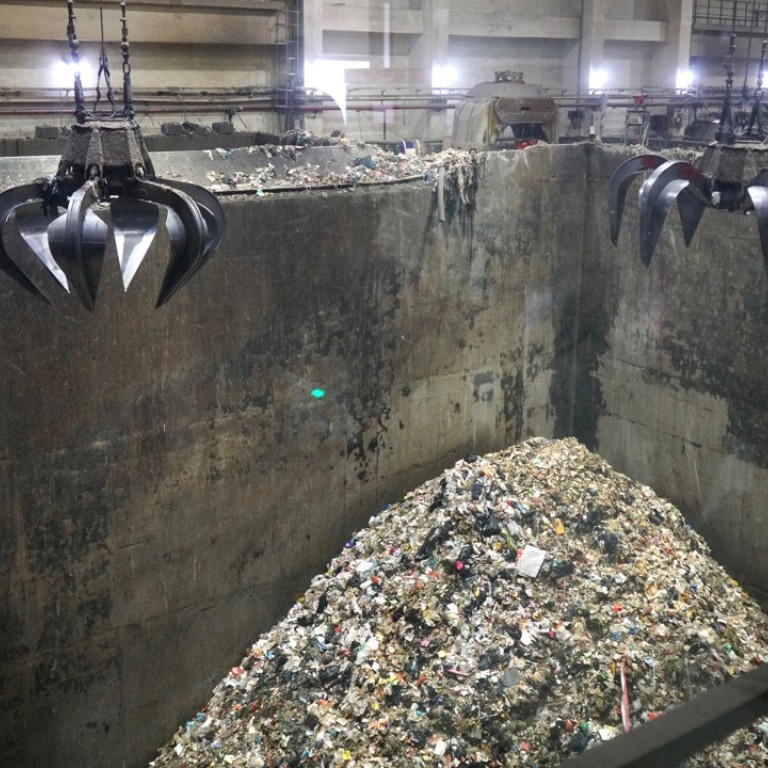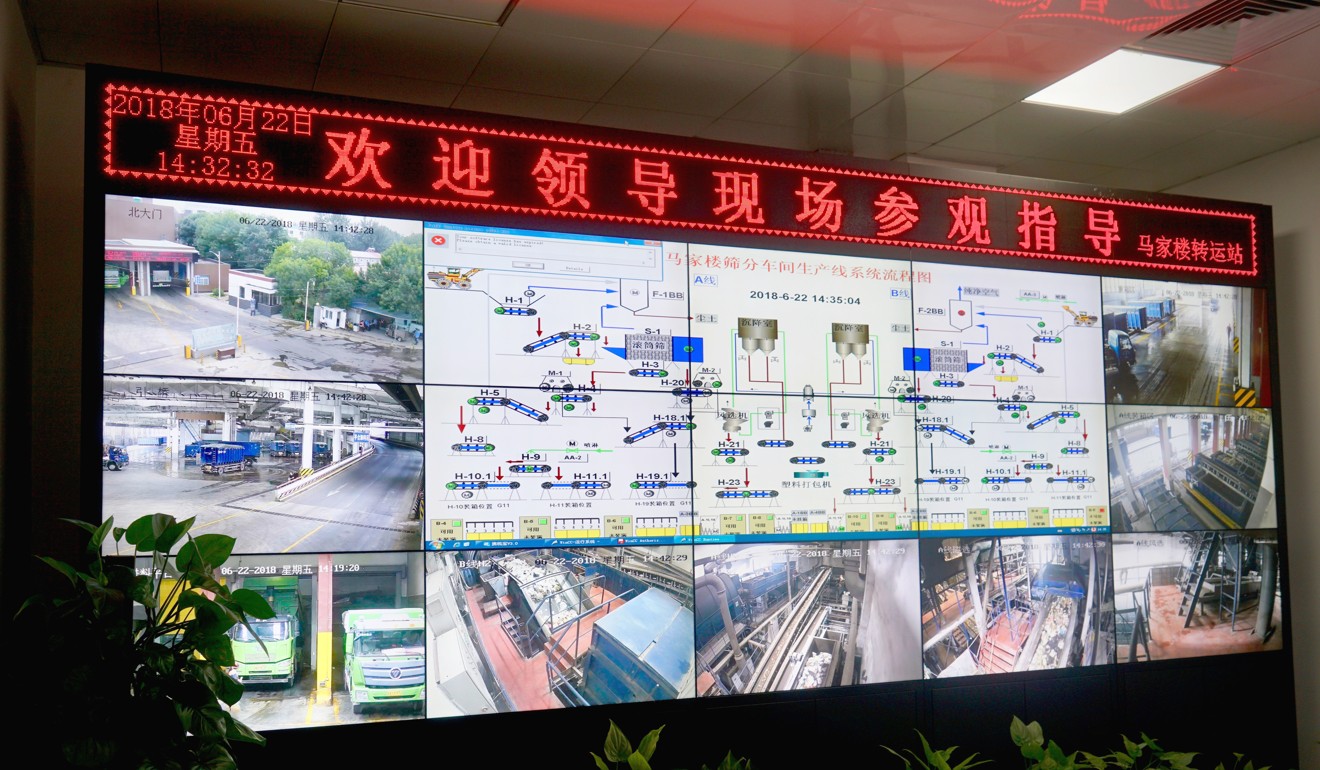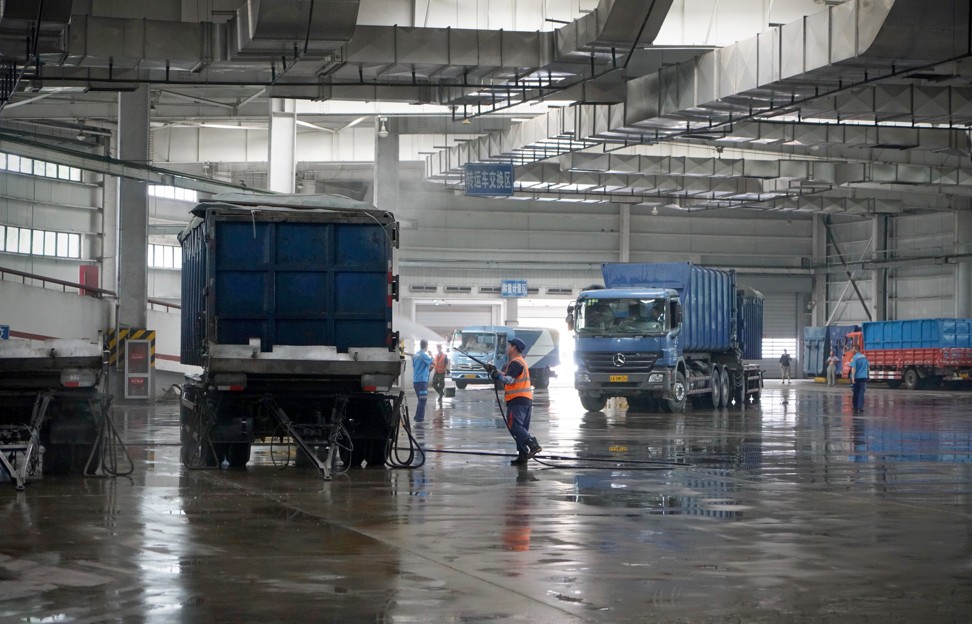
Beijing struggling to contain its growing garbage problem
About 40 per cent of the city’s domestic waste is poured into landfill sites, but these are considered bad for the environment and create odour problems
For the past 10 years, Wang Lili has sorted rubbish from her home in Beijing’s downtown Xicheng district into recyclable and non-recyclable before taking them to a collection point in her residential complex.
A cleaner then sifts through it again to separate it into kitchen waste, recyclables and other items before sending it on for further processing.
Wang, 71, lives in one of the first parts of the Chinese capital to pilot garbage classification. As a result, she has grown to resent overpackaging and has been teaching her six-year-old grandson to sort out garbage.
“It’s not very complicated and a six-year-old boy can do it,” she said.
China ups war on waste with prizes for Beijing households sorting their own rubbish and recycling
Beijing residents created just over 9 million tonnes of domestic garbage last year and the figure has been steadily rising.
The city government wants more people to take garbage classification seriously and plans to increase the use of waste incineration, even though that idea has been strongly opposed by the public.
Currently, about 40 per cent of the city’s domestic waste is poured into landfill sites, but these are considered bad for the environment and create odour problems. The rest of the garbage is either burned or biochemically treated.
Zhang Yuesheng, deputy director of the environmental hygiene facilities department at the Beijing Municipal Commission of Urban Planning, said the authorities had sped up the construction of incineration facilities, and that by 2035 no household waste would be buried.
A matter of waste: the Hong Kong pupils making compost from their leftovers
People sorting and classifying their garbage was important in reaching that target, he said, as it not only rescued recyclable resources, but also improved the efficiency of the incinerators by removing unsuitable materials.
To date, about 30 per cent of the 323 registered neighbourhoods in Beijing have started sorting domestic garbage, and by 2020 if is hoped that figure will have risen to 90 per cent.
In Wang’s neighbourhood, sorted waste is transported twice a day to the Majialou waste transit station in southern Beijing, where the classification process continues with the help of machines.
On a huge sifting belt, fans separate out light items, like plastic bags, while anything smaller than 80mm (3 inches) in diameter falls through the holes in the conveyor and is sent for landfill.
“This station handles 2,000 tonnes of waste from four districts in Beijing every day,” said Wang Lishan, who manages the station.
“If garbage was sorted better, we could handle a lot more,” he said.
China's coal heartland to put emissions caps on industry as part of battle against pollution
Larger waste items are sent to the Biomass Energy Project, a huge incinerator operated by Beijing Shougang Company in the city’s mountainous Mentougou district. The plant handles 3,000 tonnes of waste every day, which is about an eighth of all the domestic garbage produced, and there are plans in the pipeline to double its capacity.

Song Guojun, a professor at Renmin University’s school of environment and natural resources, said that garbage classification programmes had been tried out in Beijing for the past 10 years but that they needed to be made compulsory to maximise their effectiveness.
“We call for compulsory garbage classification at the source, be it a household or office building,” Song said, adding that people who did not comply should be punished.
China needs urgent overhaul to treat billions of tonnes of waste, says top lawmaker
Feng Xiangpeng, head of the solid waste department at the Beijing Municipal Commission of Urban Planning, said the answer to the growing garbage problem was not only recycling, but also reducing how much waste was produced in the first place.
“Curb overpackaging and reduce the amount of unrecyclable garbage is the way to improve garbage classification,” he said.


